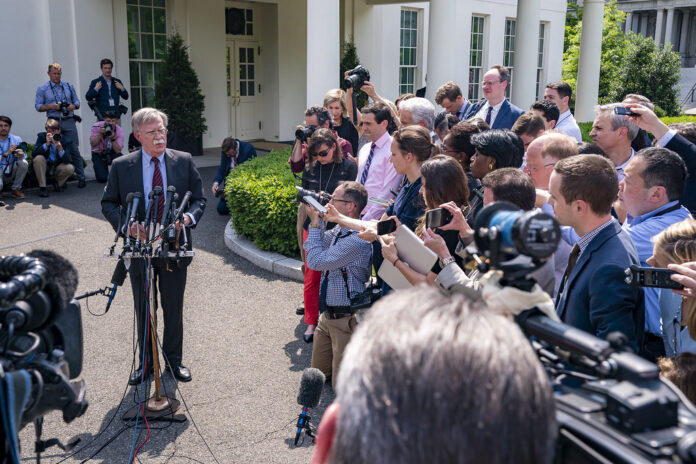Key Takeaways
- Conservative analyst Bill Kristol flagged a big slip by Rubio on the Venezuela strike.
- Rubio said, “Instead of interdicting it, we blew it up,” raising legal doubts.
- Kristol argues the Trump team has not offered any clear explanation.
- The Venezuela strike may lack a solid legal basis, Kristol says.
- Unlike other missions, the administration remains oddly silent about this action.
Did Rubio Slip Up on the Venezuela Strike?
What Rubio Said and Why It Matters
Last week, Secretary of State Marco Rubio told reporters that the Trump team hit a boat off Venezuela. He said, “Instead of interdicting it, on the president’s orders, we blew it up.” Then he added, “Maybe it’s happening right now. I don’t know.” Immediately, people noticed. After all, no one had clearly explained why the U.S. attacked that vessel.
On a recent episode of The Bulwark Podcast, host Tim Miller spoke with Bill Kristol about this comment. Kristol called Rubio’s words a “revealing mistake.” He argued that Rubio showed more than he intended to. In fact, Rubio’s frank admission sparked legal questions.
Legal Questions Around the Venezuela Strike
Kristol pointed out that Rubio’s admission clashes with U.S. law. Under the Constitution, the president cannot order lethal force on a foreign vessel in every case. Moreover, the usual drug enforcement rules favor stopping and seizing suspect boats. In contrast, Rubio said they simply blew this one up.
Without clear evidence, killing people or destroying property can breach international law. Kristol noted that the U.S. has no proof the boat carried smugglers. Therefore, the strike may have broken both U.S. and international rules. Kristol said, “I mean, that is not within the president’s power to do, especially because we don’t even know that they were drug smugglers.”
Furthermore, drug boats off Venezuela often carry small loads. Coast Guard and Navy units usually intercept them without force. In this case, there was no report of a chase, no attempt to board, and no warning shots. Instead, the boat vanished in an explosion.
Why Details Are Missing from the Venezuela Strike
Despite Rubio’s candid words, the White House has kept quiet. When asked, officials offered no new facts. They have not explained the target, the timing, or the legal basis. As Kristol put it, “They haven’t explained anything.”
This silence raises more doubts than it answers. If the Trump team had solid proof, they would want to share it. They would defend the action, just like they did after striking Iran’s nuclear facilities. However, in this case, the hush seems telling.
Moreover, Rubio himself seemed unsure. He hinted the strike could be ongoing. Yet no one confirmed that. This mix of speculation and secrecy leaves the public guessing.
How This Compares to Other Military Actions
Kristol compared the Venezuela strike to past U.S. operations. After the Iran nuclear site strikes, the administration rushed to defend itself. Officials offered maps, videos, and legal memos. They wanted the world to know their case.
By contrast, the Venezuela strike sits in the shadows. There is no press briefing, no slideshow, no legal memo. It seems the White House lacks confidence in its own story. Kristol noted this difference clearly. He said, “The fact that they haven’t said anything shows they have a problem.”
In addition, the Iran campaign targeted clear military assets. It struck installations with known ties to nuclear weapons. Here, the target was an unmarked vessel in open water. It delivered drugs for profit, not missiles for war. The stakes and the legal framework differ sharply.
Political Impact and Public Reaction
Rubio’s mistake could leave the administration exposed on Capitol Hill. Lawmakers often demand details before approving military actions. If they suspect legal overreach, they may push back. That could strain Trump’s ties with Congress.
Furthermore, voters may question America’s role in foreign waters. Many assume the U.S. has the right to stop drug runners. Yet few expect a surprise bombing without due process. Rubio’s words highlight that gap.
Therefore, the Venezuela strike may become a hot topic in political debates. Opponents will argue the White House overstepped its authority. Supporters will defend the need to fight drug trafficking. However, without clear facts, both sides struggle to build a solid case.
Lessons for Future Actions
This incident shows how a single phrase can change the story. Rubio meant to defend the strike. Instead, he revealed a major legal weak point. Moving forward, the administration should aim for transparency. They must clarify rules for future operations.
Moreover, they should train spokespeople to stick to the facts. In crises, loose talk can trigger bigger problems. Here, Rubio’s slip highlights the power of words in diplomacy and law.
In the end, clarity matters. Whether dealing with Venezuela, Iran, or any other state, leaders must explain their actions. Otherwise, they risk losing public trust and legal standing.
FAQs
What exactly did Rubio say about the Venezuela strike?
He said on camera that the Trump team “blew up” a boat on presidential orders, admitting they used force instead of intercepting it.
Why is there a legal debate over the Venezuela strike?
Experts say the president lacks clear authority to destroy a foreign vessel without proof of hostile intent or drug evidence.
How did the Iran strikes differ from this action?
The Iran strikes targeted known military sites and came with detailed public defense, while the Venezuela strike remains unexplained and secret.
What might come next in Congress?
Lawmakers could demand more information or challenge the administration’s legal basis for ordering the attack.

